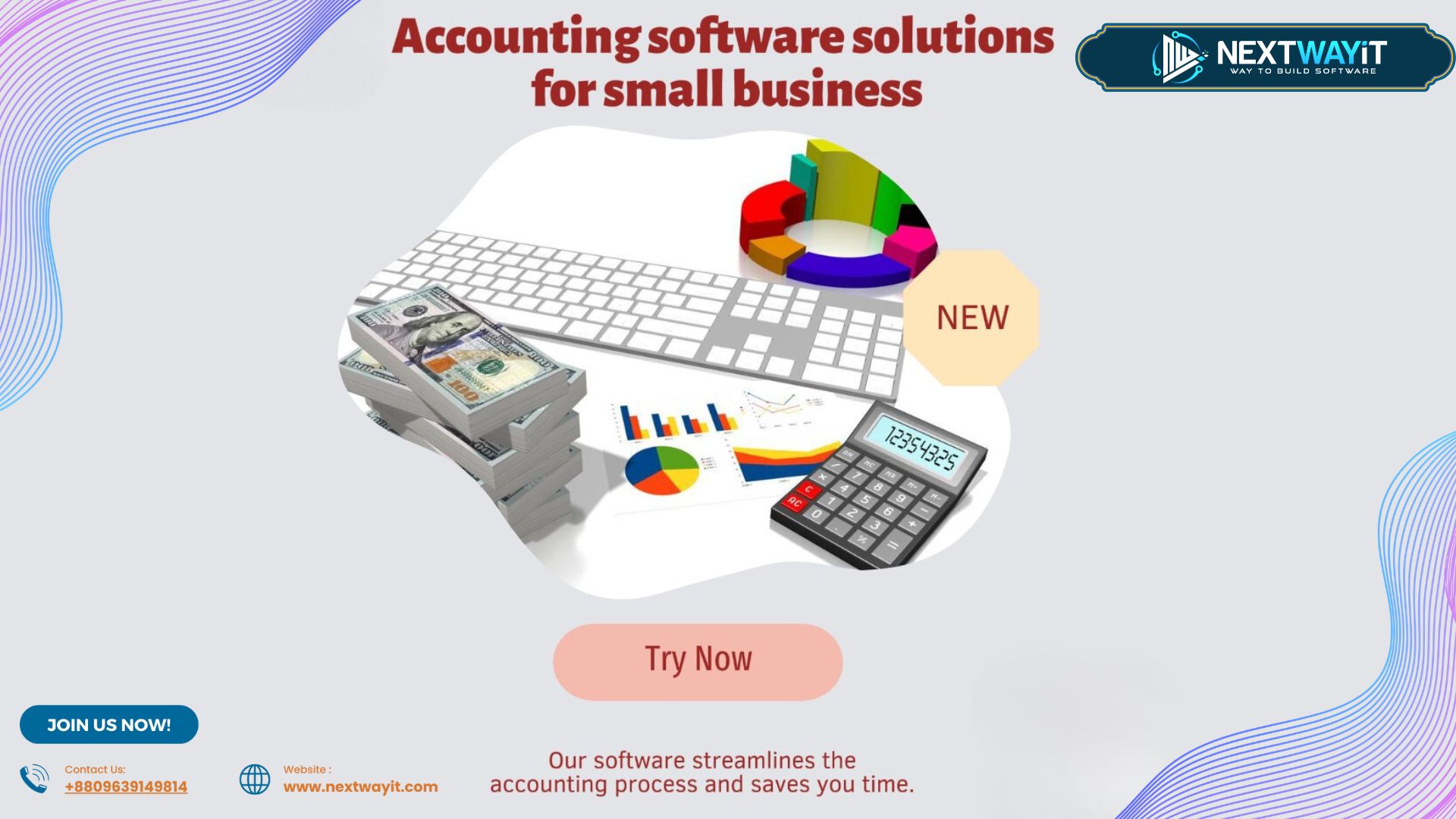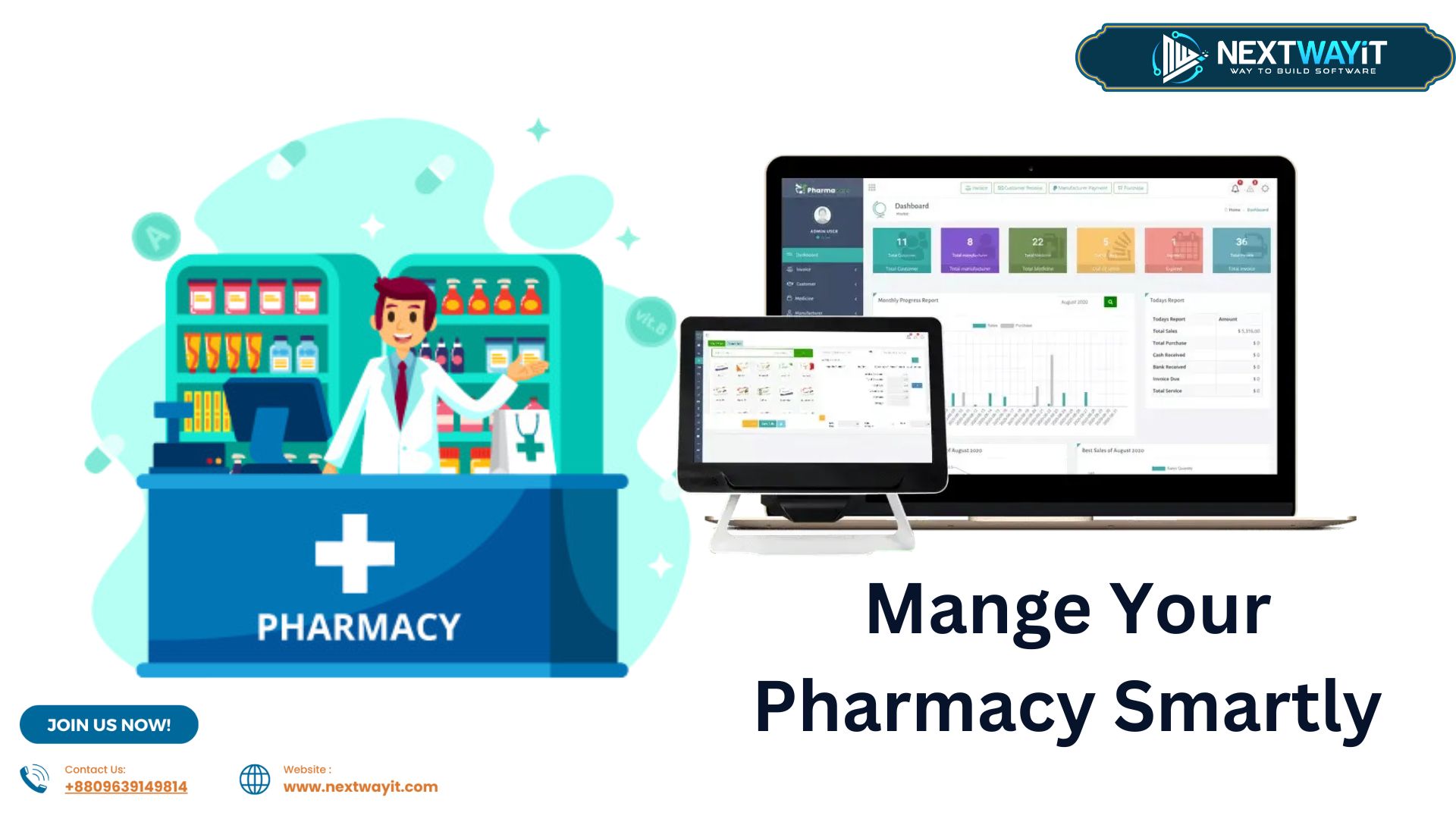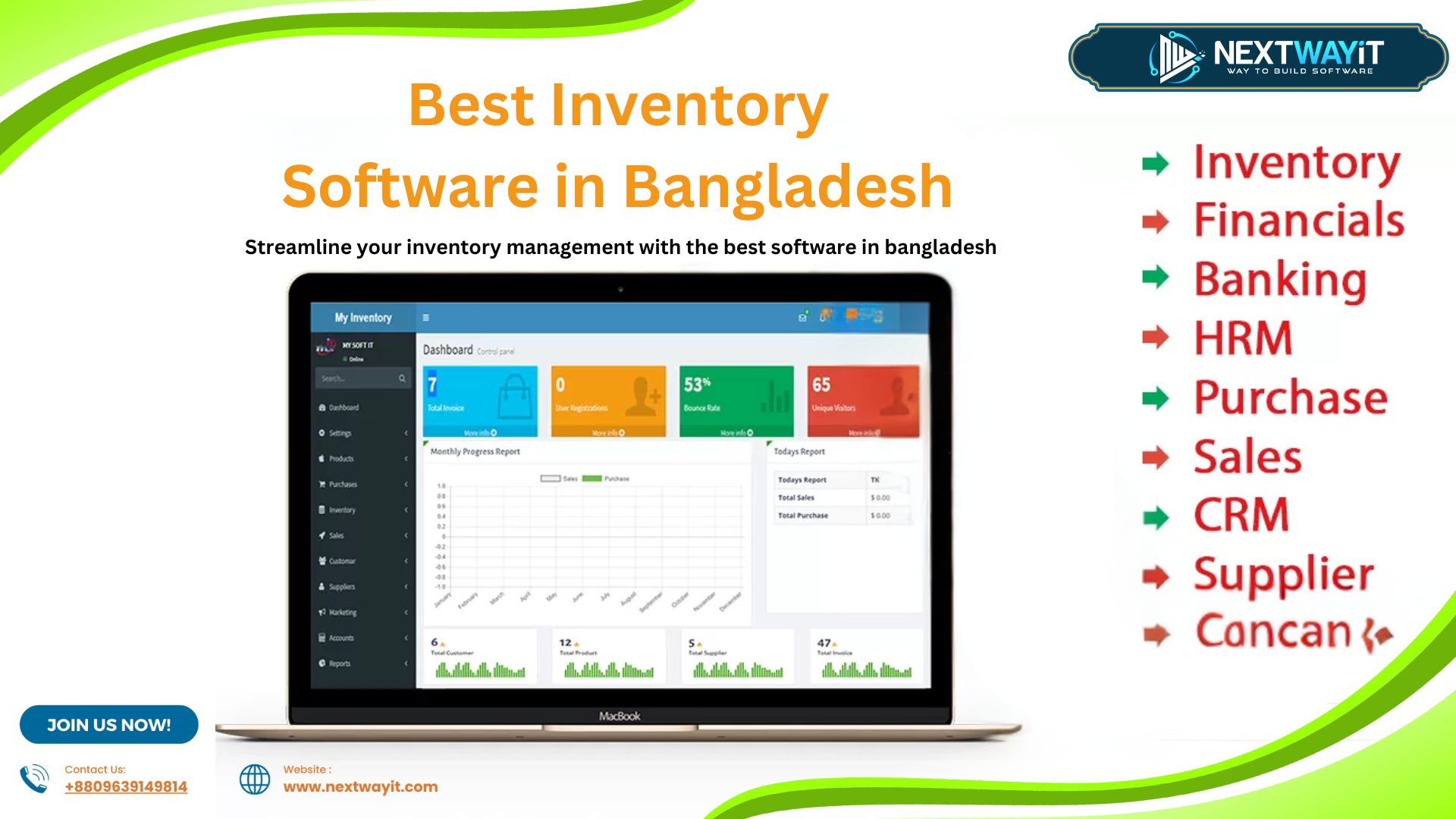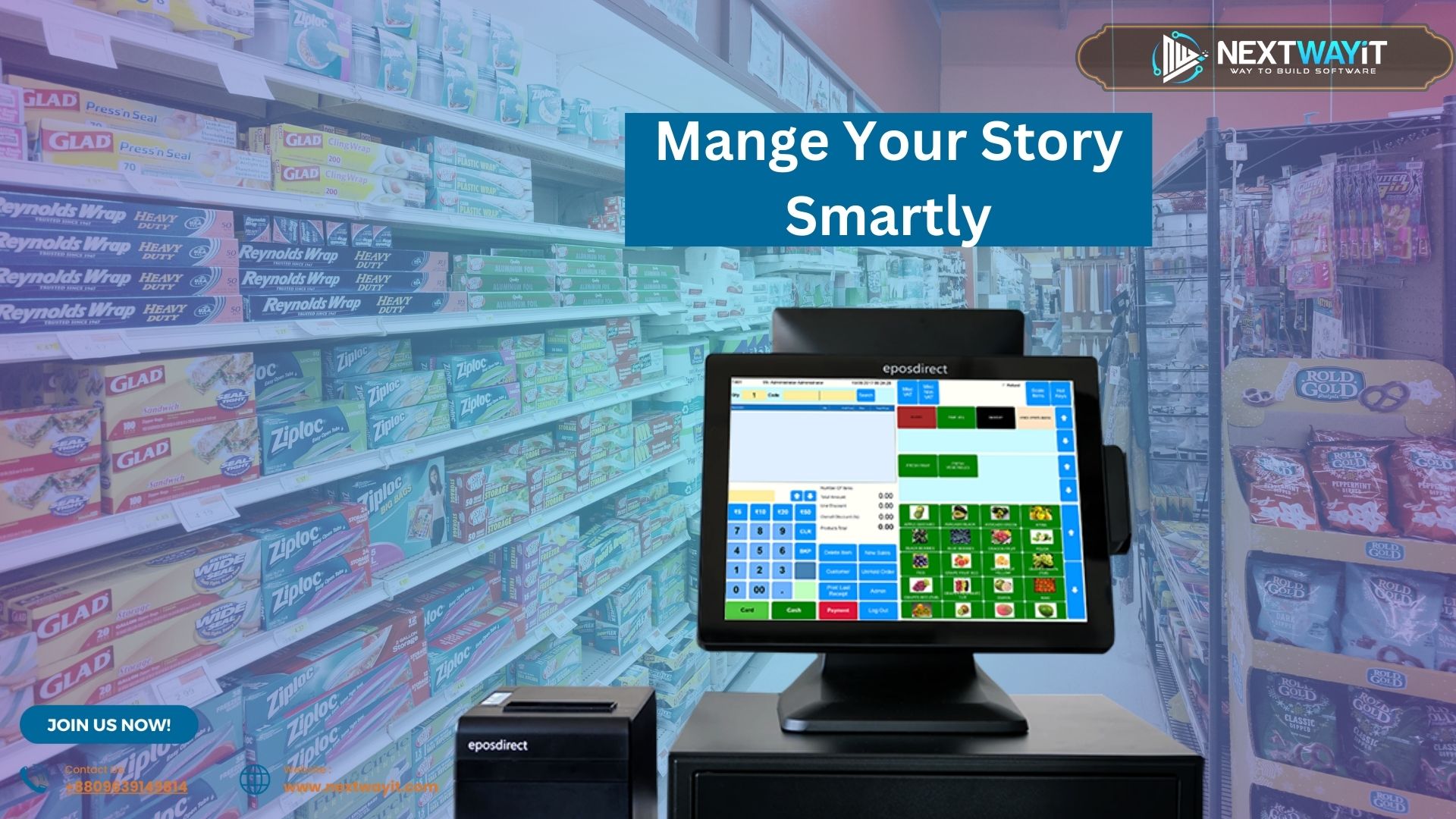
The Crucial Role of Accounting Software in Small Business Success
In this article discuss about Accounting software solutions for small business. For small businesses, financial management is not just about tracking money—it’s about sustaining the business, making informed decisions, and ensuring long-term growth. Accounting software has become a cornerstone for small businesses, allowing them to manage their finances efficiently and accurately. Unlike traditional manual bookkeeping, modern accounting software automates many of the tedious tasks associated with financial management, freeing up time for business owners to focus on growth strategies and customer satisfaction.
Why Small Businesses Need Accounting Software
Small businesses face unique challenges, including limited resources, tight budgets, and the need to maintain compliance with complex tax laws. Accounting software addresses these challenges by providing a centralized platform for managing all financial transactions. From invoicing and payroll to tax preparation and financial reporting, accounting software simplifies these processes, reducing the likelihood of errors and ensuring that financial data is always up-to-date.
Moreover, small businesses often operate with lean teams, meaning that every minute counts. Accounting software streamlines processes that would otherwise consume significant time and energy, such as reconciling bank statements, tracking expenses, and managing accounts payable and receivable. This efficiency is vital for small businesses, where time saved is money earned.
Core Features to Look for in Accounting Software
When choosing accounting software, it’s essential to focus on features that will directly benefit the business. Here are some core features that small businesses should prioritize:
- Invoicing and Billing: The ability to create and send invoices directly from the software helps ensure that payments are received on time. Automated reminders can be set up to follow up on unpaid invoices, which is crucial for maintaining cash flow.
- Expense Tracking: Small businesses need to keep a close eye on expenses. Accounting software that offers real-time expense tracking allows for better budgeting and cost control. Many solutions also offer receipt capture through mobile apps, making it easy to record expenses on the go.
- Financial Reporting: Comprehensive financial reporting is vital for understanding the financial health of a business. Look for software that offers customizable reports, such as profit and loss statements, balance sheets, and cash flow reports. These reports provide valuable insights that can guide business decisions.
- Tax Preparation and Compliance: Navigating tax laws can be daunting for small businesses. Accounting software that includes tax preparation tools can simplify this process, helping businesses to calculate taxes owed, prepare tax forms, and even file taxes directly from the platform. Ensuring that the software is compliant with local tax laws is also crucial.
- Payroll Management: For businesses with employees, payroll management is a critical function. Some accounting software solutions offer integrated payroll features, allowing businesses to manage salaries, bonuses, and deductions in one place. This integration ensures that payroll expenses are accurately reflected in financial reports.
- Integration with Other Tools: Small businesses often use various software tools for different aspects of their operations. Accounting software that integrates with CRM systems, e-commerce platforms, and inventory management tools can create a unified business ecosystem. This integration ensures that data flows seamlessly across platforms, reducing the need for manual data entry and minimizing errors.
- Cloud-Based Access: Cloud-based accounting software provides the flexibility to access financial data from any location with an internet connection. This feature is particularly beneficial for small business owners who need to manage their finances on the go. Cloud solutions also offer the advantage of automatic updates and backups, ensuring that data is always secure and up-to-date.
Popular Accounting Software Solutions for Small Businesses
The market offers a wide array of accounting software solutions, each with its own strengths and weaknesses. Here are some of the most popular options that cater specifically to small businesses:
- QuickBooks: Intuit’s QuickBooks is perhaps the most well-known accounting software for small businesses. It offers a user-friendly interface, a comprehensive set of features, and various pricing tiers to accommodate different business sizes. QuickBooks is particularly strong in invoicing, expense tracking, and financial reporting. It also offers seamless integration with numerous third-party apps, making it a versatile choice for small businesses.
- Xero: Xero is another popular choice, known for its robust integration capabilities and intuitive design. It’s particularly favored by small businesses that require extensive third-party app integrations. Xero also offers excellent multi-currency support, making it ideal for businesses that operate internationally.
- FreshBooks: FreshBooks is a cloud-based accounting software that excels in invoicing and expense management. It’s particularly well-suited for service-based businesses, freelancers, and contractors. FreshBooks offers features like time tracking, project management, and client billing, making it a comprehensive solution for small businesses in these sectors.
- Wave: Wave is a free accounting software option that offers a surprising number of features given its price point. It’s ideal for very small businesses, freelancers, and solopreneurs who need basic accounting functions without the cost. While it lacks some of the more advanced features found in paid solutions, it’s a solid choice for businesses on a tight budget.
- Zoho Books: Zoho Books is part of the larger Zoho suite of business tools, making it an excellent choice for businesses already using Zoho products. It offers comprehensive accounting features, including invoicing, expense tracking, and inventory management. Zoho Books is also highly scalable, making it a good option for businesses expecting to grow.
Cost Considerations and Budgeting for Accounting Software
While accounting software can offer significant value to small businesses, cost is a critical factor to consider. Pricing models vary, with some software charging a one-time fee, while others operate on a subscription basis. Here are some key cost considerations:
- Subscription Fees: Many popular accounting software solutions, such as QuickBooks and Xero, operate on a subscription basis. Monthly fees can range from a few dollars to several hundred, depending on the features and number of users. It’s important to evaluate what features are included at each pricing tier to ensure that the software meets the business’s needs without unnecessary costs.
- Additional Costs: Some software may require additional fees for certain features, such as payroll processing, additional users, or advanced reporting. It’s essential to understand these potential costs upfront to avoid surprises later on.
- Free Trials and Demos: Many accounting software providers offer free trials or demos, allowing businesses to test the software before committing. Taking advantage of these trials can provide valuable insights into whether the software is a good fit for the business’s needs.
- Return on Investment (ROI): While the upfront cost of accounting software can be a concern, it’s important to consider the long-term ROI. Effective accounting software can save significant time, reduce errors, and provide insights that lead to better financial decisions—all of which can contribute to the business’s profitability.
Integration Capabilities: Creating a Unified Business Ecosystem
One of the most powerful benefits of modern accounting software is its ability to integrate with other business tools. For small businesses, integration capabilities are essential for creating a cohesive and efficient business operation. Here’s how integration can benefit small businesses:
- Customer Relationship Management (CRM): Integrating accounting software with a CRM system ensures that sales and financial data are aligned. This integration allows businesses to track customer payments, manage invoices, and monitor financial relationships within the same platform.
- E-commerce Platforms: For small businesses that sell products online, integration with e-commerce platforms is critical. This integration allows for seamless synchronization of sales, inventory, and financial data, reducing the need for manual data entry and minimizing errors.
- Payroll Systems: Integrating payroll systems with accounting software ensures that payroll expenses are accurately reflected in financial reports. This integration also simplifies tax reporting and compliance, as payroll data is automatically included in tax calculations.
- Inventory Management: For businesses that manage physical products, integrating accounting software with inventory management systems ensures that inventory levels are accurately tracked and reflected in financial reports. This integration helps businesses maintain optimal stock levels and avoid overstocking or stockouts.
Ensuring Data Security and Compliance
Data security is a top priority for small businesses, especially when it comes to financial information. Accounting software should offer robust security features to protect sensitive data from unauthorized access and cyber threats. Here are some key security considerations:
- Encryption: Ensure that the software uses strong encryption methods to protect data, both at rest and in transit. This encryption ensures that even if data is intercepted, it cannot be read by unauthorized parties.
- Multi-Factor Authentication (MFA): MFA adds an extra layer of security by requiring users to provide two or more forms of identification before accessing the software. This feature is particularly important for preventing unauthorized access to financial data.
- Regular Backups: Data loss can be catastrophic for small businesses. Ensure that the accounting software provides regular, automated backups to prevent data loss in the event of a system failure or cyberattack.
- Compliance with Regulations: Depending on the industry, small businesses may be subject to specific regulations regarding data security and financial reporting. Ensure that the accounting software complies with relevant regulations, such as GDPR or HIPAA, to avoid legal issues.
Scalability and Customization: Preparing for Growth
As small businesses grow, their accounting needs will evolve. It’s essential to choose accounting software that is scalable and can grow with the business. Here’s what to consider:
- Adding Users: As the business grows, more employees may need access to the accounting software. Ensure that the software allows for the easy addition of new users without significant additional costs.
- Customizable Features: Small businesses often have unique needs that may not be fully met by out-of-the-box software. Look for accounting software that offers customizable features, such as the ability to create custom reports, set up unique billing cycles, or integrate with industry-specific tools.
- Support for Multiple Locations: For businesses that expand to multiple locations, it’s important to choose accounting software that supports multi-location management. This feature allows for centralized financial management across different locations, ensuring consistency and accuracy in financial reporting.
User Experience and Support: The Importance of Ease of Use
For small business owners who may not have extensive accounting experience, ease of use is a critical factor in choosing accounting software. A user-friendly interface, intuitive navigation, and accessible customer support can make a significant difference in the day-to-day use of the software. Here are some key considerations:
- User Interface: The software should have a clean, organized interface that is easy to navigate. Features should be clearly labeled, and common tasks should be easy to perform without extensive training.
- Customer Support: Even the most user-friendly software can present challenges. Look for software that offers robust customer support, including live chat, phone support, and online resources like tutorials and FAQs. Responsive customer support can help quickly resolve issues, minimizing disruption to business operations.
- Training and Onboarding: Some accounting software providers offer training and onboarding services to help businesses get started. These services can be particularly valuable for small businesses that are new to accounting software or transitioning from a different system.
Making the Final Decision: Choosing the Right Accounting Software
Choosing the right accounting software for a small business is a significant decision that requires careful consideration of the business’s current and future needs. Here’s a step-by-step approach to making the final decision:
- Assess Business Needs: Start by assessing the specific needs of the business. Consider the size of the business, the industry, the number of employees, and the complexity of financial operations. This assessment will help narrow down the options to software that meets the business’s unique requirements.
- Evaluate Features and Pricing: Once you have a shortlist of potential software solutions, evaluate their features and pricing. Consider what features are included in the base price and what additional costs may apply. Be sure to choose software that offers the features you need without unnecessary extras.
- Test with Free Trials: Take advantage of free trials or demos offered by software providers. Testing the software in a real-world setting can provide valuable insights into its ease of use, compatibility with existing systems, and overall functionality.
- Consider Long-Term Scalability: Choose software that can grow with your business. Consider how easy it will be to add new users, integrate with additional tools, and customize the software as the business evolves.
- Check Security and Compliance: Ensure that the software meets your business’s security and compliance requirements. Data security is paramount, so choose software that offers robust protection for your financial information.
- Make an Informed Decision: After evaluating all factors, make an informed decision based on the software’s ability to meet the business’s needs, its cost-effectiveness, and its potential to support the business’s growth.
Conclusion
In today’s fast-paced business environment, accounting software is an indispensable tool for small businesses. It streamlines financial management, improves accuracy, ensures compliance, and supports business growth. By carefully selecting the right accounting software, small businesses can gain a competitive edge, freeing up time and resources to focus on what truly matters—growing the business and serving customers.
This detailed article should provide a comprehensive overview for small businesses considering accounting software solutions, covering everything from essential features to final decision-making.



